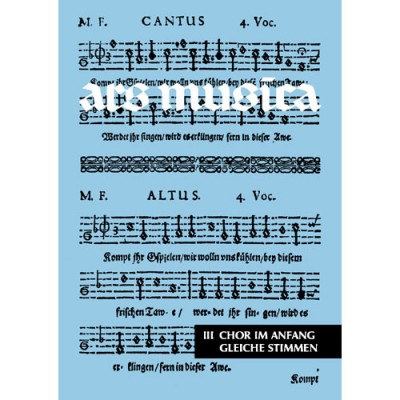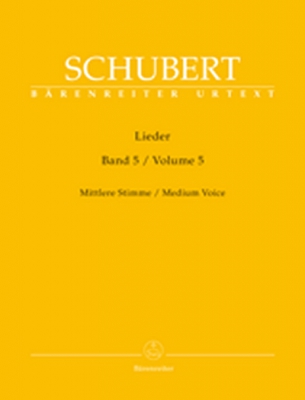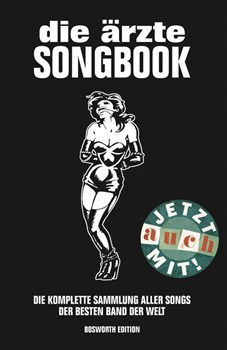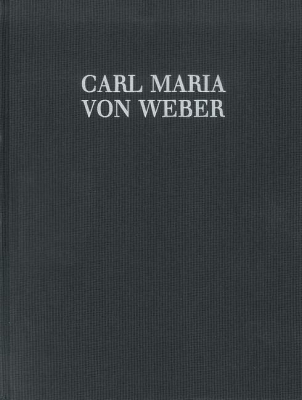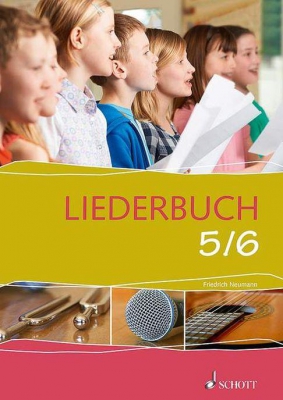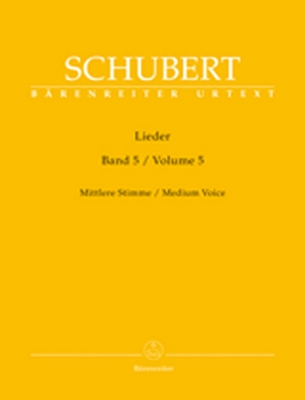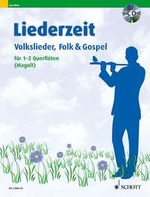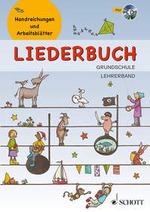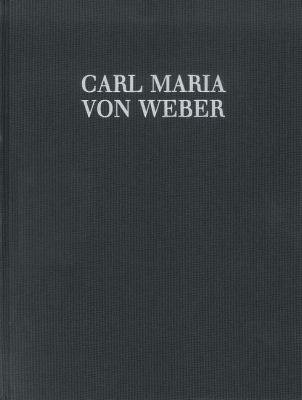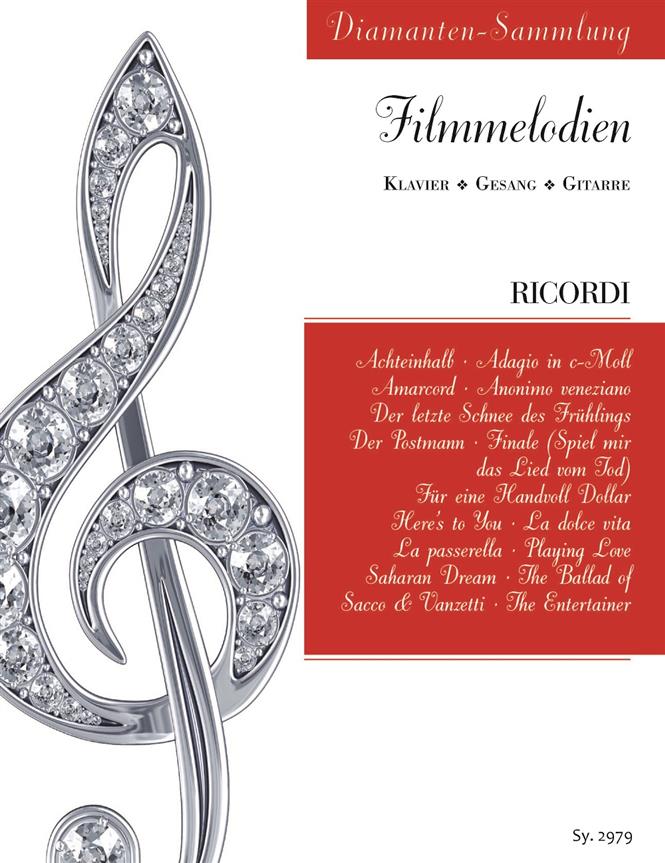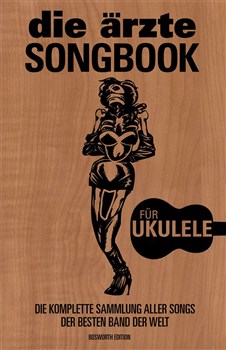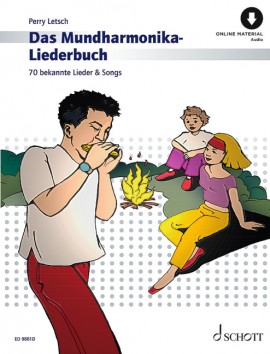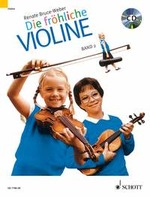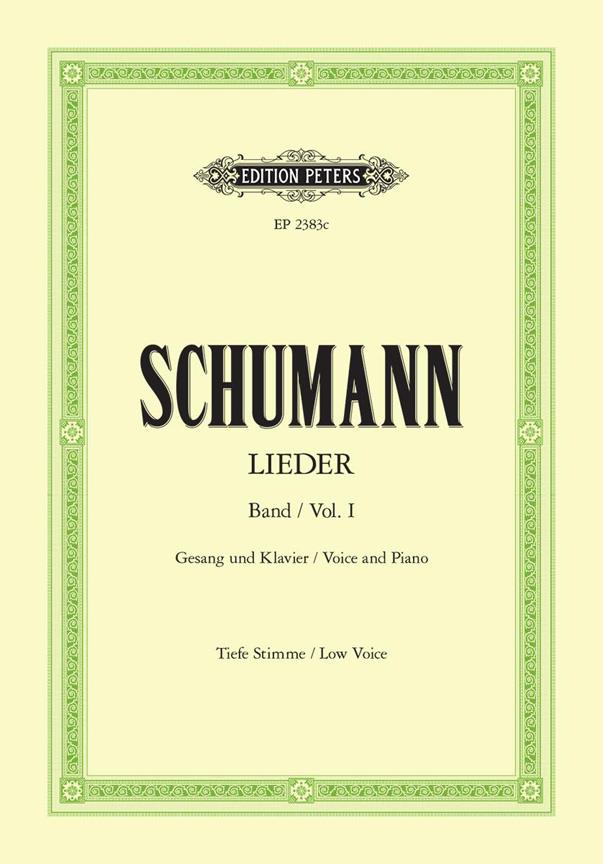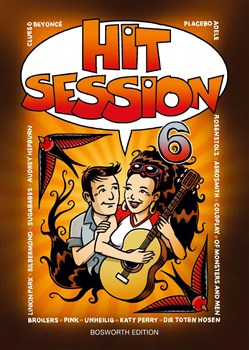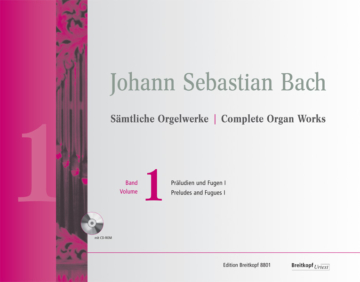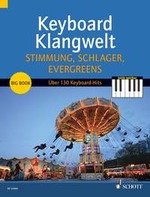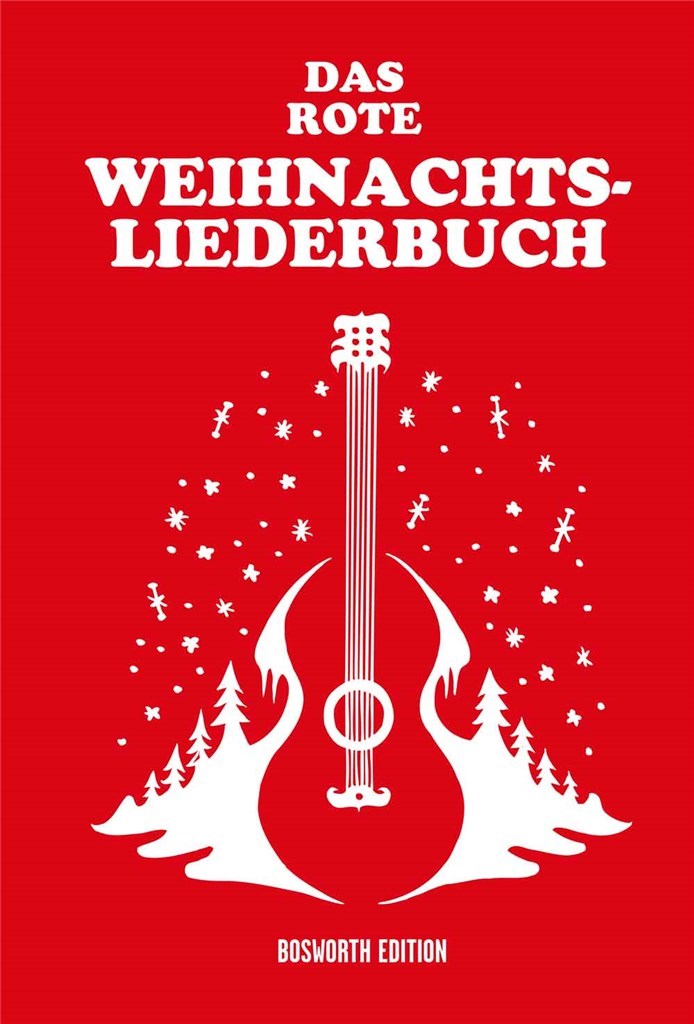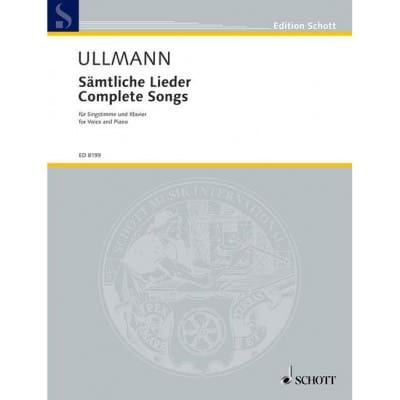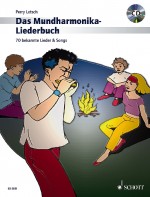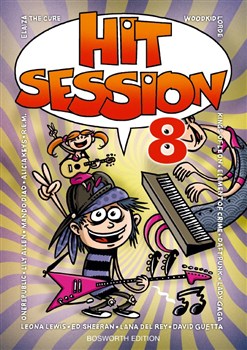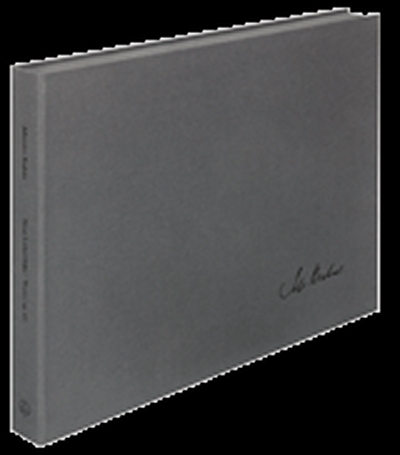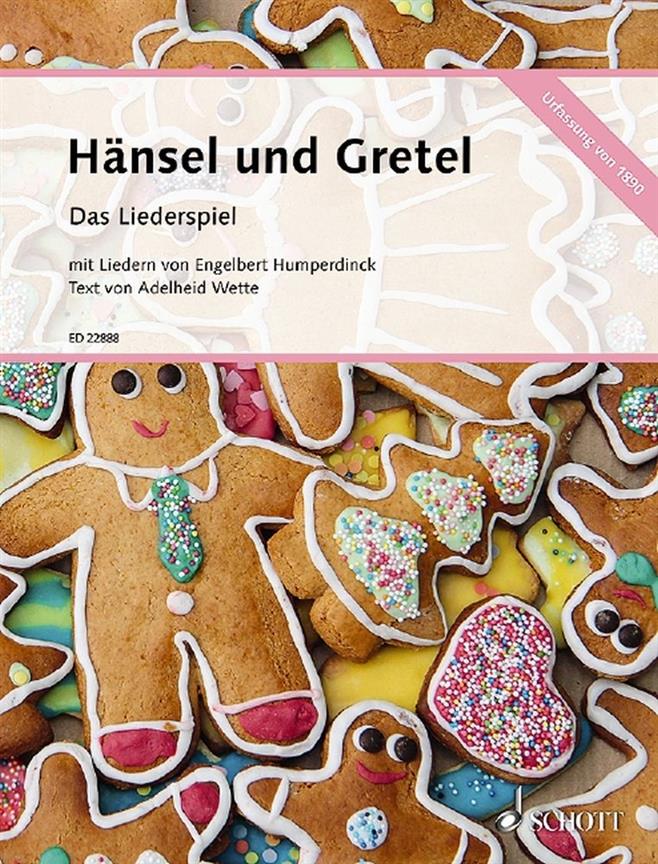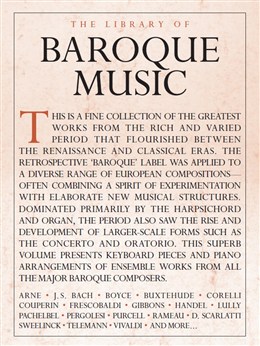|
| Ars Musica Vol. 3 - Voix
Egales
Moseler Verlag
Edition de Gottfried Wolters
Feier/Musik: Wohlauf, wir heben mit Singen an ...(+)
Edition de Gottfried Wolters
Feier/Musik: Wohlauf, wir heben mit Singen an (Paul Ernst Ruppel)
Grünet die Hoffnung (Gottfried Wolters)
An die Freude: Freude, schöner Götterfunken (Ludwig van Beethoven)
Freisinn: Lasst mich nur auf meinem Sattel gelten (Gottfried Wolters)
Wer sich die Musik erkiest (Heinz Lau)
Musica est Dei donum optimi / Dass dich Gott behüte (Kanon / Orlando di Lasso)
Lob der Musik: Was mag doch diese Welt (Johann Rudolf Ahle)
Stimmt an, stimmt an den Lobgesang (Kanon / Andrea Antico)
Tageskreis: All Morgen ist ganz frisch und neu / Vom Himmel hoch, da komm ich her (Caspar Othmayer)
Steht auf, ihr lieben Kinderlein (Max Reger)
Am Morgen: Strahlend steigt am Himmelsbogen (Orlando di Lasso)
Heil dem Tag / Lobet all Gottes Güt (Kanon / Wolfgang Amadeus Mozart)
Die güldene Sonne (Arthur Sädler)
Die helle Sonn leucht? jetzt herfür (Wolfgang Stockmeier)
Fliegt der erste Morgenstrahl (Willi Träder)
Im Wald ist schon der helle Tag (Gottfried Wolters)
Morgenlied: Es tagt, der Sonne Morgenstrahl (Werner Gneist)
Jeden Morgen geht die Sonne auf (Gottfried Wolters)
Dämmerung bricht jetzt herein (Ernst Häublein)
In the twilight stillness / In der Dämmerstille (Kanon / England)
Gute Nacht: Hält einer über uns die Wacht (Kanon / England)
Lasst uns all nach Hause gehen (Kurt Müller)
Zeit zu gehn ists (Kanon / Gottfried Wolters)
Nun wollen wir singen das Abendlied (Otto Kaufmann)
Ich liege und schlafe ganz in Frieden (Kanon / Otto Kaufmann)
Nun wollen wir singen das Abendlied (Felicitas Kukuck)
All praise to thee, my God / Dank sei dir Gott (Kanon / Thomas Tallis)
Der Mond ist aufgegangen (Herbert Langhans)
Der Mond ist aufgegangen (Otto Kaufmann)
Es dunkelt schon die Heide (Felicitas Kukuck)
Dunkelt das Land nun (Jens Rohwer)
O du stille Zeit (Gottfried Wolters)
Wiegen-Reim: Ozewiezewoze (Gottfried Wolters)
Frau Holle tut das Wasser tragen (Gottfried Wolters)
Kindlein mein, schlaf doch ein / Kindla mei, schloff ock ei (Otto Kaufmann)
Sommeil, vite, vite (Gottfried Wolters)
Dobrú noc, má milá / Gute Nacht: Schlafe, Liebchen gute Nacht (Heinz Lau)
Jahreskreis: Ach bittrer Winter (Armin Knab)
Limu limu lima / Limu limu leimen (Gottfried Wolters)
Der Feber ist vergangen (Heinrich Spitta)
Im Walde blüht der Seidelbast (Heinz Lau)
Wollt im Winter ein Brieflein schreiben (Gottfried Wolters)
Ei wohl ein schöne Zeit (Volkssatz)
Trariro, der Sommer der ist do (Gottfried Wolters)
Trariro, der Sommer der ist do (Felicitas Kukuck)
Singt ein Vogel (Heinz Lau)
Der Maien bringt uns der Blümlein viel (Michael Praetorius)
Grüss Gott, du schöner Maie / Eija, der Maie (Jens Rohwer)
Grüss Gott, du schöner Maie / Durch Feld und Buchenhallen (Andreas Rauch)
Der kühle Maien (Johann Hermann Schein)
Mailied: Grüner wird die Au (Franz Schubert)
Willkommen, lieber schöner Mai (Kanon / Franz Schubert)
Der Mai beginnt: Der Schnee zerrinnt, der Mai beginnt (Kanon / Franz Schubert)
Nun will der Lenz uns grüssen (Helmut Bornefeld)
Zu Maien die Vögelein singen (Wilhelm Keller)
Die liebe Maienzeit (Melchior Franck)
Der Kuckuck bleibt nicht still: L?inverno è passato / Der Winter ist vorüber (Hermann Wunsch)
Hört ihr ihn rufen (Kanon / England)
Der Kuckuck: Hört ihr den Vogel schrein (Kanon / Felicitas Kukuck)
Dieser Kuckuck, der mich neckt (Herbert Beuerle)
The nightingale, the merry nightingale (Kanon / England)
In the merry month of may (Henry Youll)
Come let us all amaying go / Das ist der Mai (Kanon / John Hilton)
Lachend kommt der Sommer (Zoltán Kodály)
Wacht auf, der helle Tag ist längst erwacht (Felicitas Kukuck)
Schön ist die Welt (Gottfried Wolters)
Mich brennts in meinen Reiseschuhn (Gottfried Wolters)
Lied der Räuber: Ein freies Leben führen wir (Gottfried Wolters)
Festlied: Von dem Berge zu den Hügeln (Heinz Lau)
Sonne leuchte mir ins Herz hinein (Heinz Lau)
Im Wald, im hellen Sonnenschein (Ernst-Lothar von Knorr)
O Täler weit, o Höhen (Melchior Franck)
Abschied vom Walde: Wer hat dich, du schöner Wald (Walter Rein)
Ihr kleinen Vögelein (Werner Gneist)
Ihr kleinen Vögelein (Gottfried Wolters)
Geh aus, mein Herz, und suche Freud (Jakob Regnart)
Lobt Gott, den Herrn: Ihr Leut, steht auf (Kanon / Gottfried Wolters)
Lobt Gott in allen Landen (Konrad Hagius)
Von Gott kommt alles her: Was nah ist und was ferne (Wilhelm Keller)
Gott hat alles recht gemacht (Volkssatz)
Ridijo (Jodler)
Europäische Lieder und Chorsätze: No, though I shrink still (Thomas Weelkes)
Sweet Nymph (Thomas Morley)
Though Philomela lost her love (Thomas Morley)
Adieu, sweet Amaryllis (Kanon / Richard Brown)
Ik zeg adieu / Ich sag ade (Jacobus Clemens non papa)
Adieu soulas / Ich sag ade (Antoine de Févin)
La Perronnelle:Av? vous point vu / Habt ihr gesehen die Perronnellle (Jacobus Clemens non papa)
La pastorella mia (Jakob Arcadelt)
La mia dolce pastorella (Domenici Maria Melli)
Parapiglia: Madona nui sapimo bon giocare / Ihr Schönen, kommt, wir wissen lust?ge Spiele (Giovanni Domenico da Nola)
No desmayes, coraçón (Alfonso de Mondéjar)
Sola me dejastes (16. Jahrhundert)
Mit Lieb bin ich umfangen / Es ist ein Schnee gefallen (Caspar Othmayr)
Es weht ein Windlein kühl von Osten (Jacobus Clemens non papa)
Wann ich gedenk der Stund (Jacobus Clemens non papa)
Kein grösser Freud (Jakob Regnart)
Ohn dich muss ich mich aller Freuden massen (Leonhard Lechner)
Der Winter ist ein strenger Gast (Michael Praetorius)
All mein Gedanken, die ich hab (Kaspar Roeseling)
Minnelied: Ich freue mich auf die Blumen rot (Ernst-Lothar von Knorr)
Wach auf, meins Herzens Schöne (Otto Kaufmann)
Fein sein, beinander bleibn (Volkssatz)
Verstohlen geht der Mond auf (Ernst Häublein)
O du schöner Rosengarten (Gottfried Wolters)
Ich hört ein Sichelein rauschen (Heinz Lau)
Es war ein König in Thule (Carl Friedrich Zelter)
Es sass ein klein wild Vögelein (Helmut Bräutigam)
Zogen einst fünf wilde Schwäne (Heinz Lau)
Ich fahr dahin, wann es muss sein (Johannes Brahms)
Feinsliebchen, du sollst mir nicht barfuss geh?n (Johannes Brahms)
Da unten im Tale (Johannes Brahms)
Wenn ich ein Vöglein wär (Kanon / Clara Schumann)
Rossignolets du bois joli / Nachtigall, sing dein schönstes Lied (Gottfried Wolters)
Rossinyol, que vas a França / Rossinyol, flieg hin nach Frankreich (Gottfried Wolters)
Tulu, kommst du den nicht (Jens Rohwer)
Uti vår hage / Draussen da wachsen blau Beeren (Felicitas Kukuck)
Per Spelemann / Hans Spielmann (Daniel Helldén)
Per Spelemann / Hans Spielmann (Otto Kaufmann)
Mä olen paimenpoikamen / Ich bin ein junger Hirtenknab (Gottfried Wolters)
Boerinnetje van buiten (Leontinus)
Wel Anne-Marieke (Kamiel Cooremans)
Das Carillon von Ekelsbeeke: Über Ekelsbeeke klingt (Gottfried Wolters)
J?ai descendu dans mon jardin / In meinen Garten trat ich ein (Willi Träder)
Carillon d?Orléans: Orléans, Beaugency (Kanon / Frankreich)
Si le Roy m?avait donné Paris / Wenn der König mir Paris (Gottfried Wolters)
La Violette: J?ai un long voyage à faire / Eine weite Reise hätt ich (Carl Orff)
Fior di viola / O Veilchenblüte (Carl Orff)
Kuckuck ist ein braver Mann (Carl Orff)
Gesang der Wolga-Schlepper: Ej uchnjem! Jesco rasik / Ej uchnjem! Ruft noch einmal (Otto Kaufmann)
Spielt ein Flötlein auf der Gassen (Ernst Häublein)
Sag mir doch, wo ist den mein Liebster hin (Gottfried Wolters) - Spinn, nur meine Spinnerin (Gottfried Wolters)
Abschied: Blumen haben lang geblüht (Gottfried Wolters)
Flieg her, kleiner bunter Vogel: Vöglein, flieg doch her zu mir (Lajos Bárdos)
Nem láttam én molnárcsókot / Sah nie einen Müller küssen (Lajos Bárdos)
Slowakischer Dudelsackpfeifer: Eine alte Hex (Lajos Bárdos)
Pandur andanduri (Ungaresca)
Sej, filipa táncom (Zoltán Kodály)
Hej, tulipán, teljes szëgfü / Hej, tulipán, schaut euch meinen Garten an (Zoltán Kodály)
Volt nekëm ëgy kecském / Hatte eine Ziege (Zoltán Kodály)
Her über d?Alm (Volkssatz)
Auf der Alma, da gibt?s Kalma (Volkssatz)
Hore, hollarore (Jodler)
Springt der Hirsch übern Bach (Volkssatz)
Und der Gugu im Wald Volkssatz)
Böhmische Musikanten: Heit gihts nôch Sachsen `naus (Volkssatz)
Böhmische Musici (Volkssatz)
Der Steirer Dreier: Hoi rieho (Jodler)
Papagenos Glockenspiel: Das klinget so herrlich (Wolfgang Amadeus Mozart)
Gesseligkeit: Herr von Gänsewitz zu seinem Kammerdiener: Befehlt doch draussen still zu schweigen (Kanon / Joseph Hayden)
Er ist da (Kanon / Friedrich Kuhlau)
O du eselhafter Martin (Kanon / Wolfgang Amadeus Mozart)
Warnung: Mädchen, ach, meide Männerschmeichelein (Kanon / Carl Maria von Weber)
Kommt und lasst uns tanzen (Kanon / Frankreich)
Kommt, ihr Gspielen (Melchior Franck)
Die Brücke über den Main: Es führt über den Main (Felicitas Kukuck)
Mädel, lass zum Tanz dich führen (Siegfried Rath)
Jetzt wird getanzt (Kanon / Amerika)
Hör ich von fern Musik (Heinz Lau)
Tanzlied: Ich hab die Ros? an meinem Fuss (Carl Orff)
Sur le pont d?Avignon / Kommt zum Tanz herbei (Heinz Lau)
Heissa Kathreinerle (Gerd Watkinson)
Tanz-Quodlibet: Heissa, Kathreinerle / Immerzu,ja tanzen immerzu / Zum Tanze da geht
Je höher der Kirchturm (Franz Biebl)
Quodlibet: Übers Bacherl bin i gesprunge / Auf der Mauer, auf der Lauer / Drunten im Unterland (Arthur Sädler)
Horch, was kommt von draussen rein (Otto Kaufmann)
Martin, lieber Herre (Ernst Häublein)
Maciek: Trägt der Maciek (Felicitas Kukuck)
Mir san ja, die lustigen Hammaschmiedsgsölln (Fritz Büchtger)
Jagd-Quodlibet: Auf, auf, zum fröhlichen Jagen / Ein Jäger aus Kurpfalz / Der Jäger in dem grünen Wald (Hans Poser)
Begrüssung: Hört ihr den jubelnden Ton (Volkssatz)
Blaset die Hörner zum fröhlichen Jagen (Gottfried Wolters)
Das grosse Halali: Rufen die Hörner halali (Volkssatz)
Seefahrt/Shanty/Negro-Songs: What shall we do (Otto Kaufmann)
Vinden drar, skeppet far / Winde wehn, Schiffe gehn (Carl Borenlius) - Vinden drar, skeppet far / Winde wehn, Schiffe gehn (Jens Rohwer)
Vinden drar, skeppet far / Winde wehn, Schiffe gehn (Otto Kaufmann)
Farewell and adieu / Fareewell und adieu (Gottfried Wolters)
This ol? hammer (Kanon / Amerika)
Go down, Moses (Gottfried Wolters)
Blin? man stood on de way an? cried (Gottfried Wolters)
I never felt such love (Gottfried Wolters)
Crucifixion: They crucified my Lord (Gottfried Wolters)
Singin? wid sword in ma han? (Paul Ernst Ruppel)
Lit?le David (Gottfried Wolters)
Geistliche Chormusik: Conditor alme siderum / Gott, heiliger Schöpfer (Jacobus Clemens non papa)
Jesu, rex admirabilis / Jesu, dulcis memoria (Giovanni Pierluigi da Palestrina)
Ad te, perenne gaudium / Christe, der du bist Tag und Licht (Orlando di Lasso)
Vater unser im Himmelreich (Leonhard Paminger)
Vater unser im Himmelreich / Leit uns mit deiner rechten Hand (Kanon / Samuel Scheidt)
Herr, höre meine Worte (Hans Leo Hassler)
Ein Lied in Fröhlichkeit des Geistes zu singen: Ich freue mich und bin fröhlich (Caspar Othmayr)
Lasst uns den Herren loben (Heinrich Schütz)
Das Deo gratias: Danket dem Herren, denn er ist sehr freundlich (Johann Hermann Schein)
Ein feste Burg ist unser Gott (Caspar Othmayr)
Benedictus (Orlando di Lasso)
Herr Gott, dich loben wir (Johann Joseph Fux)
Tisch-Gebet: Aller Augen warten auf dich, Herre (Heinrich Schütz)
Danket dem Herren, denn er ist sehr freundlich (Heinrich Schütz)
Danket dem Herren, denn er ist sehr freundlich (Johann Staden)
Danket Gott, dem Herren (Johann Kugelmann)
Laudate Dominum (Gregor Aichinger)
Alleluia (Kanon / William Boyce)
Cantate Domino (Daniel Friderici)
Pleni sunt coeli et terra (Francesco Durante)
Es ist ein köstlich Ding (Johann Staden)
Nun danket alle Gott (Johann Sebastian Bach)
Wer nur den lieben Gott lässt walten (Johann Sebastian Bach)
Du Friedefürst, Herr Jesu Christ (Johann Sebastian Bach)
Laudate Deum (Kanon / Henry Purcell)
Singt dem Herrn ein neues Lied / Canticorum jubilo (Georg Friedrich Händel)
Heilig, heilig, heilig, heilig ist der Herr (Franz Schubert)
Soli Deo gloria: Gloria, soli Deo gloria (Kanon / Paul Kickstat)
Lobe den Herren, den mächtigen König (Gottfried Wolters)
Sancta Trinitas: Dominum patrem nostrum benedicimus (Kanon / Jens Rohwer)
Wie schön leuchtet der Morgenstern (Fritz Dietrich)
Advent/Weihnachten: O Heiland, reiss die Himmel auf (Heinz Lau)
Es kommt ein Schiff, geladen (Otto Kaufmann) -
Es war ein Jungfrau auserkorn / Die ganze Welt, Herr Jesu Christ (Jacobus Clemens non papa)
Maria durch ein Dornwald ging (Cesar Bresgen)
Es ist ein Ros entsprungen (Johannes Petzold)
Es ist ein Ros entsprungen (Michael Praetorius)
Vom Himmel hoch, da komm ich her (Otto Kaufmann)
Uns ist ein Kindlein heut geborn (Johann Sebastian Bach)
Freut euch, ihr lieben Christen (Leonhart Schröter)
O Jesulein zart (Samuel Scheidt)
Lobt Gott, ihr Christen (Max Reger)
Gloria in exelsis Deo (Gottfried Wolters)
Hört, ihr Hirten, lasst euch sagen (Gottfried Wolters)
Jodler-Andacht: Tjo tjoiri (Jodler)
Die Hirten freuten sich (Gottfried Wolters)
Es wird scho glei dumpa (Volkssatz)
Der Heiland ist geboren (Walther Hensel)
Still, still, still, wer Gott erkennen will (Gottfried Wolters)
Ein Kind ist geboren zu Bethlem im Stall (Gottfried Wolters)
Kommet, ihr Hirten (Heinz Lau)
O du fröhliche / O sanctissima (Gottfried Wolters)
Haben Engel wir vernommen (Willi Träder)
Am weyhnachtabend in der still (Carl Orff)
Melchior et Balthazar / Melchior und Balthazar (Gottfried Wolters)
Marsch der Könige: Hoch zu Ross (Gottfried Wolters)
Täglich zu singen: Ich danke Gott (Wilhelm Keller)
Délais: Sur commande | | |
| Lieder, Vol.5
Voix moyenne, Piano [Partitur]
Barenreiter
As a continuation of the new Urtext edition of the Schubert lieder, Walther Dür...(+)
As a continuation of the new Urtext edition of the Schubert lieder, Walther Dürr has now edited volume five for high, medium and low voices. Volumes 1 to 4 of this edition contain mainly lieder which Schubert himself saw into print (in his own choice and order) and in the fourth volume works from the last two years of his life are included. The lieder in volume 5 onwards are strictly presented in the order of Deutsch's Thematic Catalogue which means that in principle they are arranged chronologically. The lieder in volume five were composed in the years 1811 to 1814. The first - 'Hagars Klage' (D 5), dated 30 March 1811 - is also his first complete surviving song. The first eleven lieder are evidence of his early studies (1811-1813/14). During this period Schubert immersed himself in Johann Rudolf Zumsteeg's ballads and lieder and wrote Italian arias during his composition lessons with Antonio Salieri. He also composed a single strophic song ('Klaglied', D 23), which - the only one of these songs - was published shortly after his death in November 1830 as op. 131, 3. His apprentice work, as it were, was the major ballade 'Der Taucher' (D 77) which was composed between 1813 and roughly the beginning of 1815. Probably not by chance, his first complete opera ('Des Teufels Lustschloss', D 84) was written at the same time. He also set fourteen poems by Friedrich von Matthisson exploring the principle of the strophic lied. - Excellent new engraving based on the 'New Schubert Edition'- Foreword by Walther Dürr discussing the history the works' composition and transmission, together with a list of sources for each song (Ger/Eng)- English translation of the song texts by Richard WigmoreContents:Hagars Klage, D 5 / Leichenfantasie, D 7 /Der Vatermörder, D 10 / Klaglied, op. post. 131, 3 - D 23 / Misero pargoletto, D 42 (high voice only) / Totengräberlied, D 44 / Die Schatten, D 50 / Verklärung, D 59 / Pensa che questo istante, D 76 (medium and low voice only) /Der Taucher, D 77 / Son fra l'onde, D 78 (high voice only) /Adelaide, D 95 / Trost. An Elisa, D 97 /Erinnerungen, D 98 / Andenken, D 99 /Geisternähe, D 100 / Erinnerung, D 101 /Die Betende, D 102 / Die Befreier Europas in Paris, D 104 /Lied aus der Ferne, D 107 (1st version) / Lied aus der Ferne, D 107 (2nd version) / Der Abend, D 108 / Lied der Liebe, D 109 /Romanze, D 114 (1st version) / Romanze, D 114 (2nd version) /An Laura (als sie Klopstocks Auferstehungslied sang), D 115 / Der Geistertanz, D 116 /Appendix (lower transpositions of the songs only in high ranges):Die Schatten, D 50 / Adelaide, D 95 / Voix Moyenne(s)
Délais: En Stock | | |
| Die Ärzte Songbook -
Update 2012
Paroles Et Accords
Bosworth
Vétérans punks allemands, Die Ärzte ont fait viscérale puissante, la musique...(+)
Vétérans punks allemands, Die Ärzte ont fait viscérale puissante, la musique punk expérimental depuis plus de deux décennies. Guitares lourdes et de l'humour dominer leurs dossiers et ils ont contribué à la renaissance punk-allemande des années 1980 et ont depuis continué à avoir du succès dans le monde entier et d'appel. Le Die Ärzte Songbook contient toutes les chansons de ces géants de rock alternatif, disposées avec paroles et accords par le meilleur groupe du monde! Cette imposante collection contient le catalogue complet de leur débuts 1984 à leur dernière version 'auch' à partir de 2012. Clairement présentées dans un ordre alphabétique, il ya détaillée discographie et un canapé-diagramme montrant les grilles d'accord de tous les accords utilisés tout au long de ce livre. Il s'agit d'une approche globale de poche édition qui contient tout leur travail importante, toutes les chansons arrangées avec paroles complètes et accords de guitare complètes. / Paroles Et Accords
Délais: 2-5 jours - En Stock Fournisseur | | |
| Silvana Wev C.5 Band 3A
Soli, choeur mixte et accompagnement
Schott
La renommée de Carl Maria von Weber repose principalement sur, Der Freischütz ...(+)
La renommée de Carl Maria von Weber repose principalement sur, Der Freischütz '. Le succès sans précédent de cet opéra éclipsé tous ses autres ouvrages et a contribué à augmenter leur chute dans l'oubli. Certaines oeuvres comme, Preciosa ',, Oberon ', et, Euryanthe', les ouvertures, concertos solistes et sonates pour piano, le lied et de la chambre de travaille connu une grande popularité et ont été largement connu en Allemagne et à l'étranger aussi tard que la seconde moitié de la 19e siècle. Cependant, toute chance d'un renouveau de l'influence de Weber et deimportance de son oeuvre a été gaspillé dans les années 1920, quand une édition complète - commencé par Hans Joachim Moser et avec les contributeurs potentiels, y compris Wilhelm Kempff, Hans Pfitzner, Max von Schillings, Fritz Stein et Richard Strauss - a échoué après le troisième volume.Depuis il ya eu de nombreuses tentatives pour relancer une édition complète des oeuvres de Weber, mais comme ce genre de projet, il aurait fallu la coopération des chercheurs des deux côtés de la frontière inter-allemande, la situation politique après 1945 n'était pas propice à une telle entreprise. Négociations minutieuses conduit à des premières étapes tangibles dans les années 1980. L'intention, dès le début, était de placer l'oeuvre de Weber dans son contexte, et de ne pas séparer sa production musicale de son travail d'influence en tant qu'écrivain, critique et organisateur dans le domaine musical, mais de publier ses compositions avec ses lettres, journaux intimes et l'autre production littéraire comme le meilleur moyen de documenter la fertilisation croisée entre ses activités musicales, littéraires et pratique.Depuis la réunification allemande les deux parties de travailler les concernés - à la Staatsbibliothek zu Berlin, et au Séminaire Musikwissenschaftliches, Detmold / Paderborn - ont coopéré sur l'édition complète des oeuvres musicales (C. 45 volumes en 10 séries: sacrés la musique- cantates, des odes et d'autres oeuvres de circonstance- oeuvres théâtrales, des oeuvres de lieder et vocale- oeuvres pour orchestre- musique de chambre, musique pour piano- réductions pour piano- Miscellanea, arrangements et orchestrations, les oeuvres d'attribution douteuse). Le journal (6-8 vol.) Sont édités à Berlin et les lettres (8-10 vol.) Et d'autres écrits (2 vol.) À Detmold.Cette édition complète vise à constituer une base fiable de débat scientifique ainsi que pour la pratique de la performance authentique de la musique de Carl Maria von Weber. Conforme aux normes de ces dernières éditions historico-critiques, le matériau textuel sera basée sur toutes les sources disponibles authentiques, accompagnés par une documentation détaillée de la genèse et une liste de variantes pour chaque travail. L'importance des travaux musicologiques seront évaluées en les plaçant dans leur contexte historique, la présentation de leurs commentaires genèse, l'histoire et la critique. Les lettres, les écrits et les journaux seront traités comme liés entre eux et pertinentes les unes aux autres dans les commentaires, donc les lecteurs devraient bénéficier d'une mine d'informations concises et des références croisées. / Soliste, Choeur Et Orchestre
Délais: 2-5 jours - En Stock Fournisseur | | |
| Liederbuch 5/6
Voix seule
Schott
Eine echte Novität: Erstmals gibt es ein Liederbuch, das ausschließlich für d...(+)
Eine echte Novität: Erstmals gibt es ein Liederbuch, das ausschließlich für die Klassenstufen 5 und 6 konzipiert ist. In der Repertoireauswahl, der Ansprache der Schülerinnen und Schüler und im Zuschnitt der Angebote geht dieses neuartige Liederbuch gezielt auf die Belange genau dieser Altersstufe ein. Es ist dabei weit mehr als eine reine Repertoiresammlung: Zu vielen Titeln gibt es weiterführende Optionen rund um die Themen Klassenmusizieren, Tanz, Choreografie, Stimme und vieles mehr.- 150 Titel aus allen stilistischen Bereichen, Kontinenten und Zeiten - zahlreiche Zusatzangebote zu Klassenmusizieren - Tanz und Bewegungsanleitungen, Begleitsätze und -patterns - Hintergrundwissen / Voix
Délais: 2-5 jours - En Stock Fournisseur | | |
| Lieder, Vol.5
Tiefe Singstimme und Klavier [Partitur]
Barenreiter
As a continuation of the new Urtext edition of the Schubert lieder, Walther Dür...(+)
As a continuation of the new Urtext edition of the Schubert lieder, Walther Dürr has now edited volume five for high, medium and low voices. Volumes 1 to 4 of this edition contain mainly lieder which Schubert himself saw into print (in his own choice and order) and in the fourth volume works from the last two years of his life are included. The lieder in volume 5 onwards are strictly presented in the order of Deutsch's Thematic Catalogue which means that in principle they are arranged chronologically. The lieder in volume five were composed in the years 1811 to 1814. The first - 'Hagars Klage' (D 5), dated 30 March 1811 - is also his first complete surviving song. The first eleven lieder are evidence of his early studies (1811-1813/14). During this period Schubert immersed himself in Johann Rudolf Zumsteeg's ballads and lieder and wrote Italian arias during his composition lessons with Antonio Salieri. He also composed a single strophic song ('Klaglied', D 23), which - the only one of these songs - was published shortly after his death in November 1830 as op. 131, 3. His apprentice work, as it were, was the major ballade 'Der Taucher' (D 77) which was composed between 1813 and roughly the beginning of 1815. Probably not by chance, his first complete opera ('Des Teufels Lustschloss', D 84) was written at the same time. He also set fourteen poems by Friedrich von Matthisson exploring the principle of the strophic lied. - Excellent new engraving based on the 'New Schubert Edition'- Foreword by Walther Dürr discussing the history the works' composition and transmission, together with a list of sources for each song (Ger/Eng)- English translation of the song texts by Richard Wigmore / Voix Basses
Délais: 2-5 jours - En Stock Fournisseur | | |
| Liederzeit
Flûte traversière [Partition + CD]
Schott
'Liederzeit' ist eine Sammlung mit Liedern aus aller Welt, die sich zum alltägl...(+)
'Liederzeit' ist eine Sammlung mit Liedern aus aller Welt, die sich zum alltäglichen Musizieren zu jeder Jahres- und Tageszeit eignen: Ob gemeinsam mit Freunden, auf Festen und Feiern oder ganz privat zur eigenen Entspannung und Unterhaltung. Die ausgewählten Volkslieder, Folksongs und Gospels motivieren dazu, die Freizeit musikalisch zu gestalten: Durch leichte Arrangements, Mitspiel-CD und nicht zuletzt durch die Schönheit der Melodien selbst. Alle Lieder sind bereits von Anfängern jeden Alters gut zu bewältigen und können alleine oder zu zweit mit der CD gespielt werden. Nehmen Sie sich Liederzeit! / 1 Ou 2 Flûtes
Délais: 2-5 jours - En Stock Fournisseur | | |
| Liederbuch Grundschule -
Lehrerband
Divers
Schott
Umfassend: Mit über 250 Liedern aus allen Bereichen setzt dieses Buch neue Maß...(+)
Umfassend: Mit über 250 Liedern aus allen Bereichen setzt dieses Buch neue Maßstäbe für den Unterricht in der Grundschule. Ein stattliches Audio-Paket mit sechs CDs rundet das Angebot ab. (Separat erhältlich)Vielseitig: Ob traditionelles oder aktuelles Kinderlied, ob Pop, Folk(lore), Rap oder Kanon - zuverlässig und vielseitig bildet dieses Liederbuch alle relevanten Genres ab. Eine übersichtliche Kapitelstruktur führt durch das Schuljahr und stellt für alle denkbaren Themen und Anlässe ein reichhaltiges Angebot bereit.Weiterführend: Mit zahlreichen Zusatzinformationen, Begleitarrangements und Bewegungsanleitungen bietet dieses Liederbuch viele Anregungen für die kreative Umsetzung im Unterricht.Fächerübergreifend: Ein besonderer Pluspunkt dieses vollkommen neu konzipierten Liederbuches sind die fächerübergreifenden Angebote, mit einem reichhaltigen Fundus an praxiserprobten Ideen.Aufbauend: Ein weiteres Novum sind die ?Wissenspfade', mit denen sich kindgerecht und praxisnah Musikwissen erarbeiten lässt. Als zusätzliche Option finden sich zahlreiche Stimmbildungsübungen. / Divers
Délais: 2-5 jours - En Stock Fournisseur | | |
| Silvana Wev C.5 Band 3C
Soli, choeur mixte et accompagnement
Schott
La renommée de Carl Maria von Weber repose principalement sur, Der Freischütz ...(+)
La renommée de Carl Maria von Weber repose principalement sur, Der Freischütz '. Le succès sans précédent de cet opéra éclipsé tous ses autres ouvrages et a contribué à augmenter leur chute dans l'oubli. Certaines oeuvres comme, Preciosa ',, Oberon ', et, Euryanthe', les ouvertures, concertos solistes et sonates pour piano, le lied et de la chambre de travaille connu une grande popularité et ont été largement connu en Allemagne et à l'étranger aussi tard que la seconde moitié de la 19e siècle. Cependant, toute chance d'un renouveau de l'influence de Weber et deimportance de son oeuvre a été gaspillé dans les années 1920, quand une édition complète - commencé par Hans Joachim Moser et avec les contributeurs potentiels, y compris Wilhelm Kempff, Hans Pfitzner, Max von Schillings, Fritz Stein et Richard Strauss - a échoué après le troisième volume.Depuis il ya eu de nombreuses tentatives pour relancer une édition complète des oeuvres de Weber, mais comme ce genre de projet, il aurait fallu la coopération des chercheurs des deux côtés de la frontière inter-allemande, la situation politique après 1945 n'était pas propice à une telle entreprise. Négociations minutieuses conduit à des premières étapes tangibles dans les années 1980. L'intention, dès le début, était de placer l'oeuvre de Weber dans son contexte, et de ne pas séparer sa production musicale de son travail d'influence en tant qu'écrivain, critique et organisateur dans le domaine musical, mais de publier ses compositions avec ses lettres, journaux intimes et l'autre production littéraire comme le meilleur moyen de documenter la fertilisation croisée entre ses activités musicales, littéraires et pratique.Depuis la réunification allemande les deux parties de travailler les concernés - à la Staatsbibliothek zu Berlin, et au Séminaire Musikwissenschaftliches, Detmold / Paderborn - ont coopéré sur l'édition complète des oeuvres musicales (C. 45 volumes en 10 séries: sacrés la musique- cantates, des odes et d'autres oeuvres de circonstance- oeuvres théâtrales, des oeuvres de lieder et vocale- oeuvres pour orchestre- musique de chambre, musique pour piano- réductions pour piano- Miscellanea, arrangements et orchestrations, les oeuvres d'attribution douteuse). Le journal (6-8 vol.) Sont édités à Berlin et les lettres (8-10 vol.) Et d'autres écrits (2 vol.) À Detmold.Cette édition complète vise à constituer une base fiable de débat scientifique ainsi que pour la pratique de la performance authentique de la musique de Carl Maria von Weber. Conforme aux normes de ces dernières éditions historico-critiques, le matériau textuel sera basée sur toutes les sources disponibles authentiques, accompagnés par une documentation détaillée de la genèse et une liste de variantes pour chaque travail. L'importance des travaux musicologiques seront évaluées en les plaçant dans leur contexte historique, la présentation de leurs commentaires genèse, l'histoire et la critique. Les lettres, les écrits et les journaux seront traités comme liés entre eux et pertinentes les unes aux autres dans les commentaires, donc les lecteurs devraient bénéficier d'une mine d'informations concises et des références croisées. / Soliste, Choeur Et Orchestre
Délais: 2-5 jours - En Stock Fournisseur | | |
| Diamanten-Sammlung -
Filmmelodien
Piano, Voix et Guitare - Intermédiaire
Ricordi
Klavier-Gesang-Gitarre. Die Diamanten-Sammlung enthält die schönsten Schätze ...(+)
Klavier-Gesang-Gitarre. Die Diamanten-Sammlung enthält die schönsten Schätze aus dem populären Musikrepertoire aller Zeiten; dabei widmet sich jeder Band einem bestimmten Thema. Sämtliche Arrangements – teils nur für Klavier, teils auch mit einer Gesangsstimme – sind mitinternationalen Akkordsymbolen versehen. Sie zeichnen den Charakter dieser musikalischen Meisterwerke aus aller Welt bis ins Detail nach. So werden diese zu einem unvergleichlichen Erlebnis – für die Ausführenden wie auch für das Publikum. Inhalt: Achteinhalb - Adagio in c-Moll - Amarcord - Anonimo veneziano - Der letzte Schnee des Frühlings - Der Postmann - Finale (Spiel mir das Lied vom Tod) - Für eine Handvoll Dollar - Heres to You - La dolce vita - La passerella - Playing Love- Saharan Dream - The Ballad of Sacco & Vanzetti - The Entertainer. / Niveau : Intermédiaire / TV, Film, Comédie musicale / Recueil / Piano, Chant et Guitare
Délais: 2-5 jours - En Stock Fournisseur | | |
| Die Ärzte Songbook
Ukulele
Bosworth
Version pour Ukulélé de Die Ärzte Songbook (BOE7622). Die Ärzte est un allem...(+)
Version pour Ukulélé de Die Ärzte Songbook (BOE7622). Die Ärzte est un allemand célèbre groupe de pop-amusant. Ce recueil comprend paroles et les accords, avec un tableau des accords jointe à la fin du livre. Petit format de livre noir, avec couvercle en PVC. Arrangé pour Ukulele GCEA accordage standard. Couverture livré avec un design grain du bois. / Ukulélé
Délais: 2-5 jours - En Stock Fournisseur | | |
| Das
Mundharmonika-Liederbuch
/ The Mouth Organ
Songbook (LETSCH PERRY)
Harmonica [Partition + Accès audio]
Schott
70 bekannte Lieder and Songs. Par LETSCH PERRY. Finding songs for the diatonic R...(+)
70 bekannte Lieder and Songs. Par LETSCH PERRY. Finding songs for the diatonic Richter harmonica (blues harp) is not easy. Many songs can only be played in the upper octave; otherwise advanced techniques like bending have to be applied.
Perry Letsch has looked through hundreds of German songs and examined them for their suitability. The results are songs suitable both for the beginner and the advanced player. Some songs have been provided with their own solos. Apart from popular folk songs the edition includes standards such as 'Abilene', 'Blue Bossa' or 'Dona, Dona'.
Play-along with all titles included. / Date parution : 2022-10-25/ Recueil / Harmonica
Délais: 2-5 jours - En Stock Fournisseur | | |
| Die Fröhliche
Violine Band 2
Violon [Partition + CD]
Schott
L'aspect le plus important de la méthode de violon 'Die Violine fröhliche' est...(+)
L'aspect le plus important de la méthode de violon 'Die Violine fröhliche' est le plaisir d'apprendre à jouer du violon: Le manuel est destiné à un début précoce ludique avec l'instrument. Au cours de ces leçons, les élèves sont délibérément abordés dans une langue qui correspond à leur âge. En outre, la méthode fournit une gamme variée stylistiquement de pièces instrumentales classiques et folkloriques, et donne toujours beaucoup d'informations intéressantes sur la musique et ses compositeurs. / Violon
Délais: 2-5 jours - En Stock Fournisseur | | |
| Complete Songs Vol.1: 77
Songs (SCHUMANN ROBERT)
Voix basse, Piano [Partition]
Peters
Par SCHUMANN ROBERT. Ger. inc. Dichterliebe, Myrthen, Frauenlibe und Leben, Lied...(+)
Par SCHUMANN ROBERT. Ger. inc. Dichterliebe, Myrthen, Frauenlibe und Leben, Liederkreis / Classique / Répertoire / Chant et Piano
Délais: 2-5 jours - En Stock Fournisseur | | |
| Hit Session 6
Ligne De Mélodie, (Paroles) et
Accords
Bosworth
Session frapper 6 est la dernière suite de la série de sessions de Hit Boswort...(+)
Session frapper 6 est la dernière suite de la série de sessions de Hit Bosworth. Contient de nombreuses mises à jour Chart Hits. Reliure spirale. Chaque chanson est noté deux fois - comme une ligne mélodique, les paroles et les accords, et que les paroles et les accords. / Mélodie/Vocal/Guitare (MVG)
Délais: 2-5 jours - En Stock Fournisseur | | |
| Sämtliche Orgelwerke
Band 8 (BACH JOHANN
SEBASTIAN)
Orgue [Partition + CD]
Breitkopf & Härtel
Orgelchoräle Der Leipziger Handschrift. Par BACH JOHANN SEBASTIAN. Editorial Bo...(+)
Orgelchoräle Der Leipziger Handschrift. Par BACH JOHANN SEBASTIAN. Editorial Board: Werner Breig/ Pieter Dirksen/ Reinmar Emans
music text faithful to the sources and reflecting the current status of Bach research
developed for musical practice through the cooperation of scholars and performers
contains all of Bach's keyboard works that require an independent pedal manual
contains all authentic early versions and fragmentarily transmitted or dubious works that can be attributed to Bach with a fair amount of certainty
features comprehensive introductions, extensive source descriptions and text-critical notes
features supplementary material illustrated synoptically on CD-ROM (in printable quality)
brochure, in large format (32 x 25 cm) and compact music engraving, clear, easy to read, with convenient page turns
'The Breitkopf edition is obviously preferable if you're buying new copies. The series so far has been most impressive.' (Clifford Bartlett, Early Music Review)
Subscription Conditions
A subscription is only possible for the complete collection. The subscription price of the volumes is 20% lower than the final sales price. A subscription can begin at any time.
The subscription obliges the subscriber to purchase the entire collection.
The New Edition of Bach's Complete Organ Works
With repertoire works, musicians often have the choice between editions conceived for practical music-making and others that are more scholarly in concept. This also applies to the organ works of Johann Sebastian Bach, which are available today in various editions. Among them is that of Heinz Lohmann, which Breitkopf and Härtel began publishing in 1967 and whose concept strove for an amalgamation of practice and Urtext.
Current Urtext status, historically informed, edited with performers in mind:
More than 40 years later, the demands made on a new Urtext edition of Bach's organ works are as stringent as ever before. Next to the results of scholarly research on Bach and the sources, aspects of a historically informed performance practice are increasingly claiming our attention today. Also important for study, teaching and concert performance are, in addition to the above-mentioned demands, such external criteria as format, paper, convenient page turns and an easily legible layout that helps the user quickly grasp the musical context.
The new edition, beginning in 2010, also contains all keyboard works with pedal and the 'dubious works' that are hardly dubious anymore
The edition of Johann Sebastian Bach's organ works which Breitkopf and Härtel is beginning to publish in fall 2010 wants to do justice to these demands. Next to the core contents of the repertoire, it will also feature all of the master's 'clavier' works which require an independent pedal. Moreover, it will include all authentic early versions as well as the fragmentarily transmitted works. As to the dubious works, it will contain those which can be attributed to Bach today with considerable certainty.
It offers incerta, early, and alternative versions on CD-ROM
In this work group, the new edition uses for the first time the modern forms of editorial technique with which the synoptical depiction of various versions is made possible on CD-ROM. Thanks to the collaboration with the EDIROM project, which is a leader in the field of digital scientific editorial technique, the edition offers new types of solutions. Incerta, early, and alternative versions that cannot be included in the printed volumes for reasons of size or problems of authenticity, are published on CD-ROM, supplied with comments, and depicted synoptically. Thus, after comparing the versions, the player can decide upon a different version than the one printed in the volume, and can make a high-quality print-out of it. The texts and comments customary to the 'Breitkopf Urtext' editions comprehensive introductions, extensive source descriptions and text-critical observations can be found in the printed version of the volumes.
Edited by a competent team:
With Werner Breig (Erlangen), Pieter Dirksen (Culemborg/Netherlands) and Reinmar Emans (Bochum), a.o. we have brought together a team that guarantees the highest expertise in various domains. Further Bach experts such as Sven Hiemke (Hamburg), David Schulenberg (Boston) and Jean-Claude Zehnder (Basel) were also enlisted for the edition of single volumes.
Werner Breig (* 1932)
studied Evangelical church music in Berlin as well as musicology in Erlangen and Hamburg. He obtained his doctorate in 1962 and completed his habilitation (postdoctoral lecturing qualification) in 1973. He then devoted himself to musicology at the Universities of Freiburg i. Br, Karlsruhe, Wuppertal and Bochum. Since his retirement in 1997 he has been living in Erlangen. Between 1997 and 2007 Breig was appointed General Editor of the complete edition of Richard Wagners letters. He is the author of many publications and editions, particularly of early clavier and organ music by Heinrich Schütz and Johann Sebastian Bach, but also of Richard Wagner and Arnold Schoenberg. Furthermore he is the author of the Bach article in the dictionary Die Musik in Geschichte und Gegenwart (MGG, 2nd edition).
Pieter Dirksen (* 1961)
studied organ, harpsichord and musicology. His 1996 doctoral thesis on Sweelinck's keyboard music was awarded the Praemium Erasmianum. Dirksen has since published many studies on, and editions of, several masters of the 17th century (Sweelinck, Bull, Cornet, Scheidt, Scheidemann, Buxtehude, Luebeck, Johann Christoph Bach) as well as Johann Sebastian Bach. In collaboration with Harald Vogel, he edited Sweelinck's Complete Works for Keyboard Instrument (4 volumes, Breitkopf and Härtel). Dirksen is a member of the academic board of the Bach-Jahrbuch as well as a sought-after harpsichordist, organist and continuo player in international ensembles. Dirksen issued a number of much-acclaimed solo recordings (Sweelinck, Scheidemann, Boehm, Louis Couperin, Bach-Vivaldi, Bachs Art of Fugue and Goldberg Variations). Edison Winner 2003.
Reinmar Emans (* 1953)
studied musicology in Bonn and wrote his doctoral thesis on the cantatas and canzonettas of Giovanni Legrenzi in 1982. From 1983 to 2008 he was an academic staff member of the Johann-Sebastian-Bach-Institut Göttingen, and temporarily deputy of the managing director. He has taught in Bochum, Marburg, Detmold, Cologne and Hamburg, and has been a freelance contributor to various music periodicals. In 2000 he was responsible for the conception and direction of the Thuringian state exhibition 'Der junge Bach: Weil er nicht aufzuhalten' in Erfurt. He has conducted research and produced publications on opera and the cantata in 17th-century Italy, on stylistic development in the music of Johann Sebastian Bach, and on editorial philology./ Répertoire / Orgue
Délais: En Stock | | |
| Keyboard Klangwelt
Stimmung Schlager
Evergreens! Band 3
Clavier
Schott
Die schönsten Instrumentalstücke der Keyboard Klangwelt-Reihe gesammelt in umf...(+)
Die schönsten Instrumentalstücke der Keyboard Klangwelt-Reihe gesammelt in umfangreichen Sammelbänden.Über 130 Stücke zu allen frohen Anlässen wie Hochzeit oder Geburtstag, beliebte Evergreens und Wunschmelodien, Stimmungslieder für frohe Runden und Karneval and Fastnacht, leicht spielbar und gut klingend arrangiert für Keyboard, Digitalpiano und E-Orgel.Ob Sie alleine oder zusammen musizieren, mit diesem Sammelband haben Sie die richtigen Noten für jede Gelegenheit schnell zur Hand. / Clavier
Délais: 2-5 jours - En Stock Fournisseur | | |
| Das rote
Weihnachtsliederbuch
Mélodie, Paroles et Accords de
Guitare [Partition]
Bosworth
100 Weihnachtslieder aus Traditional, Pop & Rock notiert mit Text und Akkorden. ...(+)
100 Weihnachtslieder aus Traditional, Pop & Rock notiert mit Text und Akkorden. Par . / Date parution : 2021-12-09/ Recueil / Mélodie, Paroles et Accords de Guitare
Délais: 2-5 jours - En Stock Fournisseur | | |
| Ullmann Viktor -
Complete Songs
Schott
Contenu - A. Steffen: Schwer ist?s, das Schöne zu lassen - A. Steffen: Sech...(+)
Contenu - A. Steffen: Schwer ist?s, das Schöne zu lassen - A. Steffen: Sechs Lieder - I ?An Himmelfahrt? (An Himmelfahrt im Vogelbau) ? II ?Drei Blumen? (Uchtblume blüht im Herbst, zeitlos für Tote) ? III ?Dreierlei Schutzgeister? (Pilinko, Tilinko, fröhliche Flötisten) ? IV ?Es schleppt mein Schuh sich schwer im Schnee? ? V ?Wie ist die Nacht so weich und warm? ? VI ?Aus dem Häuschen in den Garten? Ricarda Huch: Fünf Liebeslieder - I ?Wo hast du all die Schönheit hergenommen? ? II ?Am Klavier? (Die laß mich hören, alte Töne, die duften Erinnerungen) ? III ?Sturmlied? (O Brausen des Meers und Stimme des Sturms) ? IV ?Wenn je ein Schönes mir zu bilden glückte? ? V ?O schöne Hand, Kelch, dessen Duft Musik? Geistliche Lieder I ?Um Mitternacht, im Schlafe schon?. Text von Albert Steffen ? II ?Die arme Seele? (Im Himmel, im Himmel sind der Freuden so viel). Nach einem alten Schweizer Volkslied ? III ?Leis? auf zarten Füßen? (Christian Morgenstern) ? IV ?Marienlied? (Ich sehe dich in tausend Bildern, Maria, lieblich ausgedrückt). Text von Novalis ? V ?First Meeting? (I have seen you long ago) ? ?Erste Begegnung? (Hab gesehn dich irgendwo) (Text von Percy MacKaye. Deutsche Übersetzung von Albert Steffen) ? VI ?Christmas Morning in Dornach? (I met God walking leisurely) ? ?Weihnachtsmorgen in Dornach? (Gottvater sah gemach ich gehn) (Percy MacKaye. Deutsche Übersetzung von Albert Steffen) - Drei Sonette aus dem Portugiesischen von Elizabeth Barett-Browning, übertragen von Rainer Maria Rilke - I ?Briefe, nun mein! Tot, bleich und lautlos dauernd!? ? II ?Sag immer wieder und noch einmal sag, daß du mich liebst.? ? III ?Sein erster Kuß berührte nur die Finger, womit ich schreibe? - Liederbuch des Hafis. Vier Lieder in der Nachdichtung von Hans Bethge - I ?Vorausbestimmung? (Alles ist vorausbestimmt durch die große Güte Allahs) ? II ?Betrunken? (Hafis, du bist betrunken, ich sehs an deinen Schatten) ? III ?Unwiderstehliche Schönheit? (Durch deine schönen Locken) ? IV ?Lob des Weines? (Gebt meinen Becher! Seht, er überstrahlt die blasse Lampe der Vernunft) - Six Sonnets de Louïze Labé - I Sonnet V ?Clere Venus? (Clere Venus, qui eres par les Cieus) ? II Sonnet VII ?On voit mourir? (On voit mourir toute chose animee) ? III Sonnet VIII ?Je vis, ie meurs? (Je vis, ie meurs: ie me brule et me noye) ? IV Sonnet XII ?Lut, compagnon? (Lut, compagnon de ma calamité) ? V Sonnet XVIII ?Baise m?encore, rebaise moy et baise.? ? VI Sonnet XIII ?Oh si i?estois? (Oh si i?estois en ce beau sein rauie) Der Mensch und sein Tag. 12 Bilder von Hans Günther - I ?Gang in den Morgen? (Der Blick. Die Hände vor die Brauen) ? II ?Gesang? (So viel. So viel und immer mehr) ? III ?Heimat? (Im Grund, im kühlen Grund ? so bunt) ? IV ? Der Liebsten? (Bei dir in Lachen und in Thränen) ? V ?Blüten? (Innig, warm und dicht verschlungen) ? VI ?In der Stube? (Zueinander, dicht gestaut) ? VII ?Der Nachbar? (Gut ist Hilfe. Hand an Hand) ? VIII ?Gebete? (In frommen Schalen ausgestreut das reife Korn) ? IX ?Im Walde? (Gesprenkelt, dicht und weit und Duft) ? X ?Verdämmern? (Hinab, hinab. Die Glocke stimmt) ? XI ?Nacht? (Komm, weicher Schlaf! Komm, süße Nacht!) ? XII ?Stille? (Ruhe. Schweigen. Schauen und Beachten) Friedrich Hölderlin: Abendphantasie - ?Abendphantasie? (Vor seiner Hütte ruhig im Schatten sitzt der Pflüger) - Hölderlin-Lieder - I ?Sonnenuntergang? (Wo bist du? Trunken dämmert die Seele mir von all deiner Wonne) ? II ?Der Frühling? (Wenn auf Gefilden neues Entzücken keimt ) - Drei chinesische Lieder (I/II) - I ?Wanderer erwacht in der Herberge? (Ich erwache leicht geblendet, ungewohnt eines fremden Lagers). Text von Li-tai-pe in der Nachdichtung von Klabund ? II ?Der müde Soldat? (Ein kahles Mädchen. Heckenblaß entlaubt). Text aus: Dumpfe Trommel und berauschtes Gong. Nachdichtungen chinesischer Kriegslyrik von Klabund [Das dritte Lied ist nicht überliefert] - Conrad Ferdinand Meyer: Drei Lieder - I ?Schnitterlied? (Wir schnitten die Saaten, wir Buben und Dirnen) ? II ?Säerspruch? (Bemesst den Schritt, bemesst den Schwung) ? III ?Die Schweizer? (Sie kommen mit dröhnenden Schritten entlang) - Immer inmitten. Solo-Kantate nach Gedichten von Hans Günther Adler - I ?Immer inmitten? (Immer inmitten durch alle Wunderbezirke geschritten) ? II ?Vor der Ewigkeit? (Was sind die Dinge dieser Welt? Was sind die Sachen?) [Die auf dem Titelblatt des Autographen aufgeführten weiteren Titel ?Abschied? und ?Es ist Zeit? sind nicht ausgeführt.] - Little Cakewalk (Chanson des enfants français I) - ?Lundi, mardi fête, mercredie peutêtre? - Frank Wedekind: Wendla im Garten (?Warum hast du dich in den Garten geschlichen??)
Délais: Sur commande | | |
| The Mouth Organ Songbook
/
Harmonica [Partition + CD]
Schott
70 well-known Songs Volkslieder, Traditionals, Oldies, Blues, Rock und Pop. Par ...(+)
70 well-known Songs Volkslieder, Traditionals, Oldies, Blues, Rock und Pop. Par . Finding songs for the diatonic Richter harmonica (blues harp) is not easy. Many songs can only be played in the upper octave; otherwise advanced techniques like bending have to be applied.
Perry Letsch has looked through hundreds of German songs and examined them for their suitability. The results are songs suitable both for the beginner and the advanced player. Some songs have been provided with their own solos. Apart from popular folk songs the edition includes standards such as 'Abilene', 'Blue Bossa' or 'Dona, Dona'.
Play-along CD with all titles included. / Niveau : facile - moyen / Date parution : 2022-03-03/ Recueil / Harmonica
Délais: 2-5 jours - En Stock Fournisseur | | |
| Hit Session 8 100 Songs
You Really Sing M - L - C
Ligne De Mélodie, (Paroles) et
Accords
Bosworth
Une collection qui regroupe une centaine de chansons transcrites en ligne mélod...(+)
Une collection qui regroupe une centaine de chansons transcrites en ligne mélodique, paroles intégrales et diagrammes d'accord guitare.Titres : A Sky Full Of Stars [Coldplay] - All About That Bass [Trainor, Meghan] - Addicted To You [Avicii] - All Summer Long [Kid Rock] - Applause [Lady Gaga] - Applaus, Applaus [Sportfreunde Stiller] - Atemlos Durch Die Nacht [Fischer, Helene] - Atlas [Coldplay] - Auf Anderen Wegen [Bourani, Andreas] - Auf Uns [Bourani, Andreas] - Back Home [Kalkbrenner, Fritz] - Best Day Of My Life [American Authors] - Bigmouth Strikes Again [Smiths, The] - Blame [Harris, Calvin] [Newman, John] - Black Saturday [Diao, Mando] - Blame It On Me [Ezra, George] - Budapest [Ezra, George] - Bleeding Love [Lewis, Leona] - Calm After The Storm [Common Linnets, The] - Dear Darlin' [Murs, Olly] - Demons [Imagine Dragons] - DJ Got Us Fallin' In Love [Usher] - Don't [Sheeran, Ed] - Everyday Is Like Sunday [Morrissey] - Einmal Um Die Welt [Cro] - Fallin' [Keys, Alicia] - For All Lovers [Stanfour] - Fade Out Lines [Avener, The] - Fever [Black Keys, The] - Get Lucky [Daft Punk feat. Pharrell] - G.U.Y. [Lady Gaga] - Ghost [Henderson, Ella] - Good Life [OneRepublic] - Hallelujah [Cohen, Leonard] - Hard Out Here [Allen, Lily] - Habits (Stay High) [Lo, Tove] - Happy [Williams, Pharrell] - Hero [Family Of The Year] - Ho Hey [Lumineers, The] - Hey Brother [Avicii] - I Love You [Woodkid] - I Will Wait [Mumford and Sons] - I See Fire [Sheeran, Ed] - I See You [Lewis, Leona] - Ich Lass Für Dich Das Licht An [Revolverheld] - If I Were A Boy [Beyonce] - Immer Da Wo Du Bist Bin Ich Nie [Element Of Crime] - In Between Days [Cure, The] - Is It Right [Elaiza] - Just Give Me A Reason [P!ink feat. Nate Ruess] - La La La [Naughty Boy] [Smith, Sam] - Lifesaver [Sunrise Avenue] - Lieder [Tawil, Adel] - Let Her Go [Passenger] - Losing My Religion [R. E. M.] - Love Me Again [Newman, John] - Lovers On The Sun [Guetta, David] - Love Runs Out [OneRepublic] - Maps [Maroon 5] - Money On My Mind [Smith, Sam] - New York, Rio, Rosenheim [Stiller, Sportfreunde] - On Top Of The World [Imagine Dragons] - One Of Us [ABBA] - Optimistisch [Goldenbaum, Martin] - Ordinary Love [U2] - Pale Shelter [Tears For Fears] - Ride [Lana Del Rey] - Rise Like A Phoenix [Wurst, Conchita] - Rude [Magic!] - Run Boy Run [Woodkid] - Safe And Sound [Capital Cities] - Save Tonight [Eagle Eye Cherry] - Saysaysay [Beatsteaks] - She Moves [Farben, Alle] - Starman [Bowie, David] - Stay The Night [Blunt, James] - Stay With Me [Smith, Sam] - Stolen Dance [Milky Chance] - Supersoaker [Kings Of Leon] - Sunday Bloody Sunday [U2] - Take Me To Church [Hozier] - Team [Lorde] - The Big Bang Theory Theme [Barenaked Ladies] - The Chamber [Kravitz, Lenny] - The Hanging Tree [Howard, James Newton] - The One [Aneta] - Things We Lost In The Fire [Bastille] - Traum [Cro] - Walk [Kwabs] - Waves [Mr Probz] - West Coast [Lana Del Rey] - Who Knew [Pink] - When The Beat Drops Out [Roudette, Marlon] - Who's That Girl? [Eurythmics] - Wings [Birdy] - Wrecking Ball [Cyrus, Miley] - Wir Werden Uns Wiedersehen [Selig] - Your Song [Goulding, Ellie] - Your Wish [Talisco] - Zeit Zu Gehen [Unheilig] / Ligne De Mélodie, Paroles Et Accords
Délais: 2-5 jours - En Stock Fournisseur | | |
| Neue Liebeslieder /
Walzer (Waltzes) Op. 65
(BRAHMS JOHANNES)
Fac-similé [Partition]
Barenreiter
Par BRAHMS JOHANNES. '… and so gladly would I have given you a hundred-thousan...(+)
Par BRAHMS JOHANNES. '… and so gladly would I have given you a hundred-thousand kisses!”- Georg Friedrich Daumer
A circle of friends as a vocal quartet alternating with solo voices and two good pianists - Brahms wrote his 'Liebeslieder Walzer” not for the grand concert hall but as chamber music for use at home. His first collection op. 52 was so successful that in 1874 he wrote a new set on poems by Daumer and Goethe entitled 'Neue Liebeslieder”.
In 2010 the Swiss bank UBS placed the autograph of the Neue Liebeslieder on permanent loan to the music room of the Zentralbibliothek Zürich.
For this occasion the library, together with the Brahms Institute of Lübeck University of Music and the musicology department of Zurich University, organised a symposium on the 'Liebeslieder Walzer” and their context.
Brahms' lavishly reproduced manuscript appears in its own hand-stitched volume accompanied by the papers featured at the authoritative symposium in a separate booklet. All of this is presented in a handsome cloth-bound box along with an audio CD, allowing the work to be experienced both visually and aurally./ Répertoire / Fac-similé
Délais: 2-5 jours - En Stock Fournisseur | | |
| Hänsel und Gretel
(HUMPERDINCK ENGELBERT)
2 Voix et Piano - Intermédiaire
Schott
Das Liederspiel. Par HUMPERDINCK ENGELBERT. When Engelbert Humperdinck’s fairy...(+)
Das Liederspiel. Par HUMPERDINCK ENGELBERT. When Engelbert Humperdinck’s fairy tale opera Hänsel und Gretel was premiered on 23 December 1893 in Weimar conducted by Richard Strauss, the work could look back on an extensive history of origin. Humperdinck’s younger sister Adelheid Wette (born in 1858) had displayed a great interest in literature in her youth and written a variety of poems for special occasions. In 1888, she wrote a fairy tale entitled Schneewittchen [Snow White] and her brother supplied some songs for this piece. Further fairy tale collaborations followed which were customarily performed within the family circle, and the first draft of the Hänsel und Gretel was begun in 1890. Adelheid’s husband would be celebrating his 34th birthday on 16 May of this year and his wife intended to surprise him with a performance of her version of this fairy tale. Her brother was allotted the task of composing the accompanying songs and, a month before the birthday, she wrote a letter to him in Mainz where Engelbert Humperdinck was among other activities working as an editor for the Schott publishing house, ordering a “very pretty folkloric” Tanzlied [Dance song], a Waldlied [Forest song] (or Echolied [Echo song]), a Schlummerlied [Lullaby] and a Kickericki-Lied [Cock-a-doodle-doo song] from her “dear sugar-sweet little brother... Engel-Bärtchen [angel beard]”. She enclosed the corresponding verses with the letter and “for fun” also provided her own invented melody for the Schlummerlied and rhythmic suggestions for the Tanzlied. Humperdinck went straight to work and, as related in an entry in his diary, was already able to play the songs to the director of the publishing house, Dr Ludwig Strecker, by 19 April. This was the history of origin of the four songs published for the first time edited in form of their original versions in this edition Brüderchen komm’ tanz’ mit mir, Wer ruft mir im Walde doch alles nach, In den Zweigen die Vögelein und Tirelireli! ‘s ist nicht mehr früh “for two children’s voices and piano accompaniment” (see manuscript1). In his reply letter to his sister in which the fair copy of the songs were enclosed, Humperdinck wrote: “As you see, the pitch of the melodies is not too high and I have incorporated your melodies. Let me know soon whether you like the little songs. By the way, the ‘cock-a-doodle-doo’ can also be sung on one note (E flat) instead of on the four notes of the chord.” The first performance of the song-play was held as planned within the family circle with Wettes’ two eldest daughters in the two principle roles. Spurred on by the success of the family performance, initial plans were forged to adapt the song-play into a singspiel with numerous musical numbers and rhymed dialogues; Hermann Wette participated in a draft of the text. The particell of this singspiel had been completed by Christmas 1890. Hugo Wolf and a few others however advised the composer to extend the singspiel into a through-composed fairy tale opera. Humperdinck followed this advice and worked on what he ironically termed as a “Kinderstubenweihfestspiel“ [sacred festive play for the nursery] during the next two summers in Bayreuth. Tanzliedchen [Dance song] and Morgenweckruf [Cock-a-doodle-doo song] were eventually included in the opera in a modified form. / Niveau : Intermédiaire / Répertoire / 2 Voix et Piano
Délais: 2-5 jours - En Stock Fournisseur | | |
| The Library Of Baroque
Music
Piano seul [Partition] - Intermédiaire/avancé
Amsco Wise Publications
The Library Of Baroque Music is an enormously expansive collection of the greate...(+)
The Library Of Baroque Music is an enormously expansive collection of the greatest works produced during that prolific period that flourished between the Renaissance and Classical eras. All arranged for solo Piano, this volume features works drawn from all the major Baroque composers, including some of the greatest pieces of music ever composed. The progression and development of music during the Baroque period can be heard in these pieces, providing you not only with a window into musical history, but also many exciting additions to your repertoire. The retrospective 'Baroque' label was applied to a diverse range of European compositions-often combining a spirit of experimentation with elaborate new musical structures. Dominated primarily by the Harpsichord and Organ, this period also saw the rise and development of larger-scale forms such as the concerto and oratorio. This superb volume is comprised of Keyboard and ensemble works from all the major Baroque composers, arranged for Piano. Featuring Arne, Boyce, Buxtehude, Corelli, Couperin, Gibbons, Lully, Pachelbel, Purcell, Rameau and Vivaldi, the composers here include some of the most respected and revered figures in musical history. The Library Of Baroque Music spans compositions of many of these masters, ranging from Frescobaldi in the early 1600s to Pergolesi a century later, and the famous three - J.S. Bach, Handel and Domenico Scarlatti.Baroque music, so called for its ornateness, was characterised by a bold exploration of counterpoint and new harmonic possibilities. This was variously expressed through the work of perhaps fifty or so major European composers. By the time Baroque began to segue into a new Classical period around 1750 it had already irrevocably changed and expanded the possibilities of music. The works that precipitated this change are available to play in this single volume, perfect for pianists looking to expand their repertoire with both challenging and exciting music.In this thoroughly enjoyable Library Of Baroque Music, the triumphant progression of this period is illustrated in the best possible way - through the compositions themselves, forming the definitive Baroque collection for solo pianists. / Piano
Délais: 2-5 jours - En Stock Fournisseur | |
|
|
